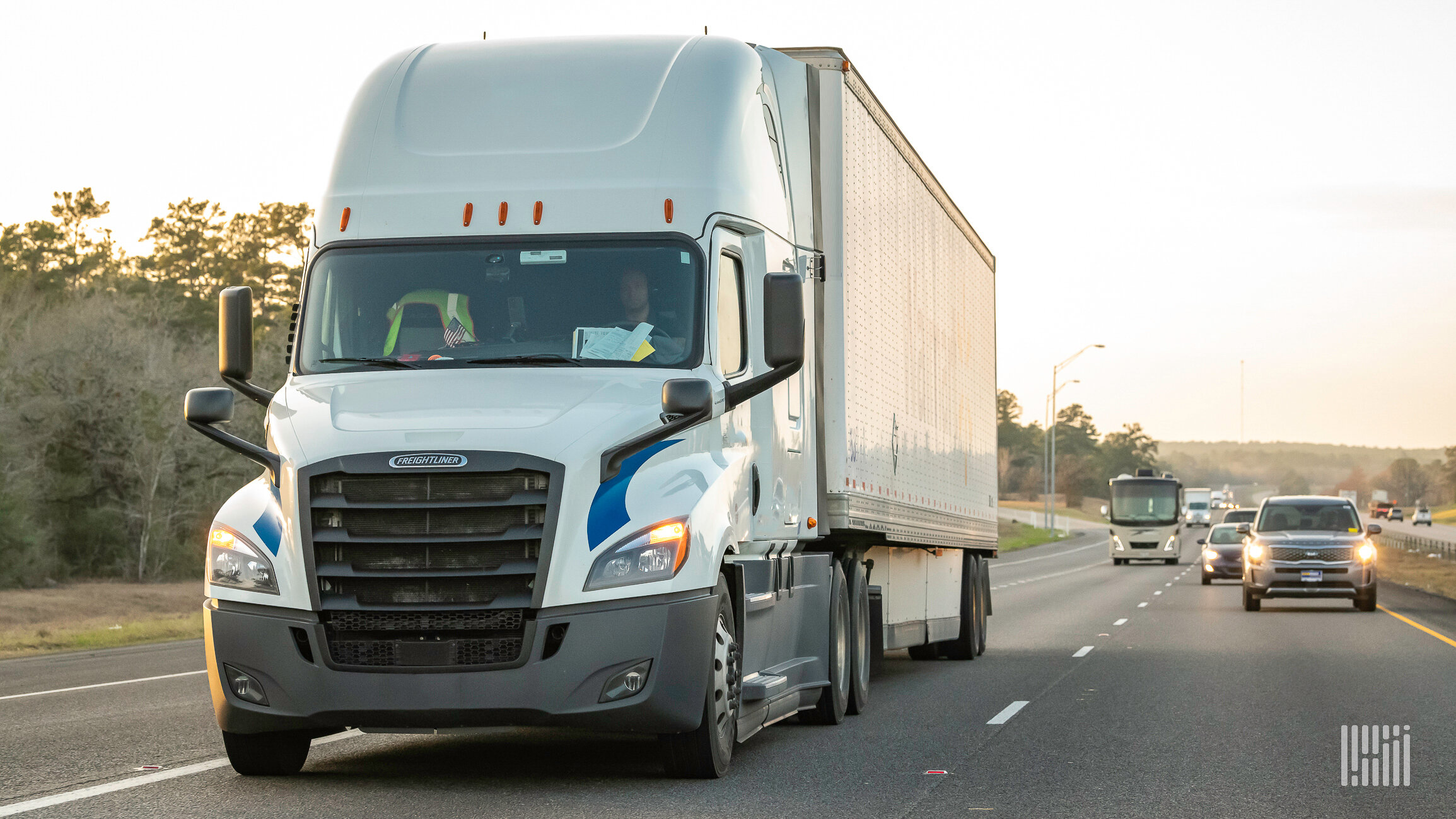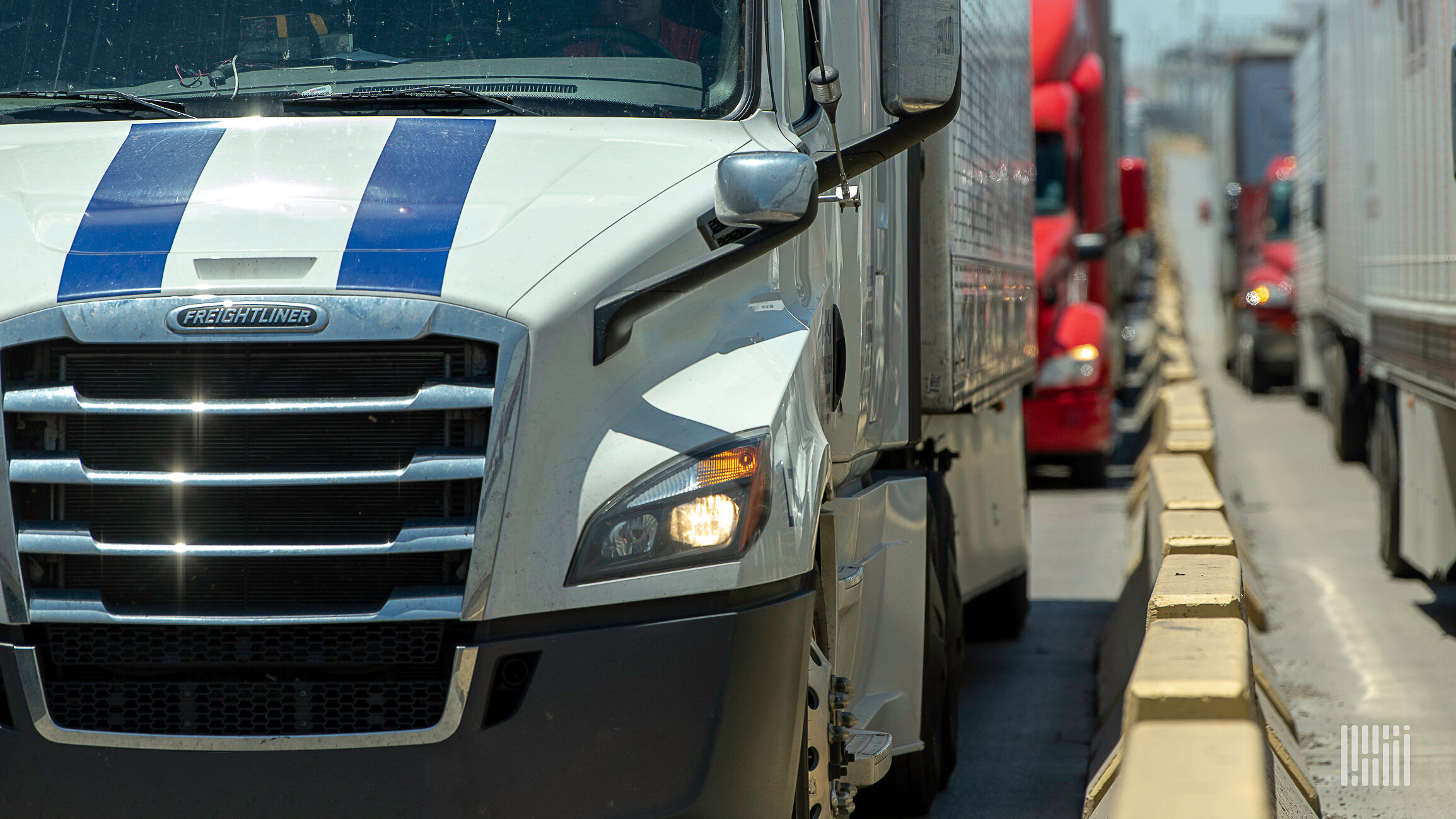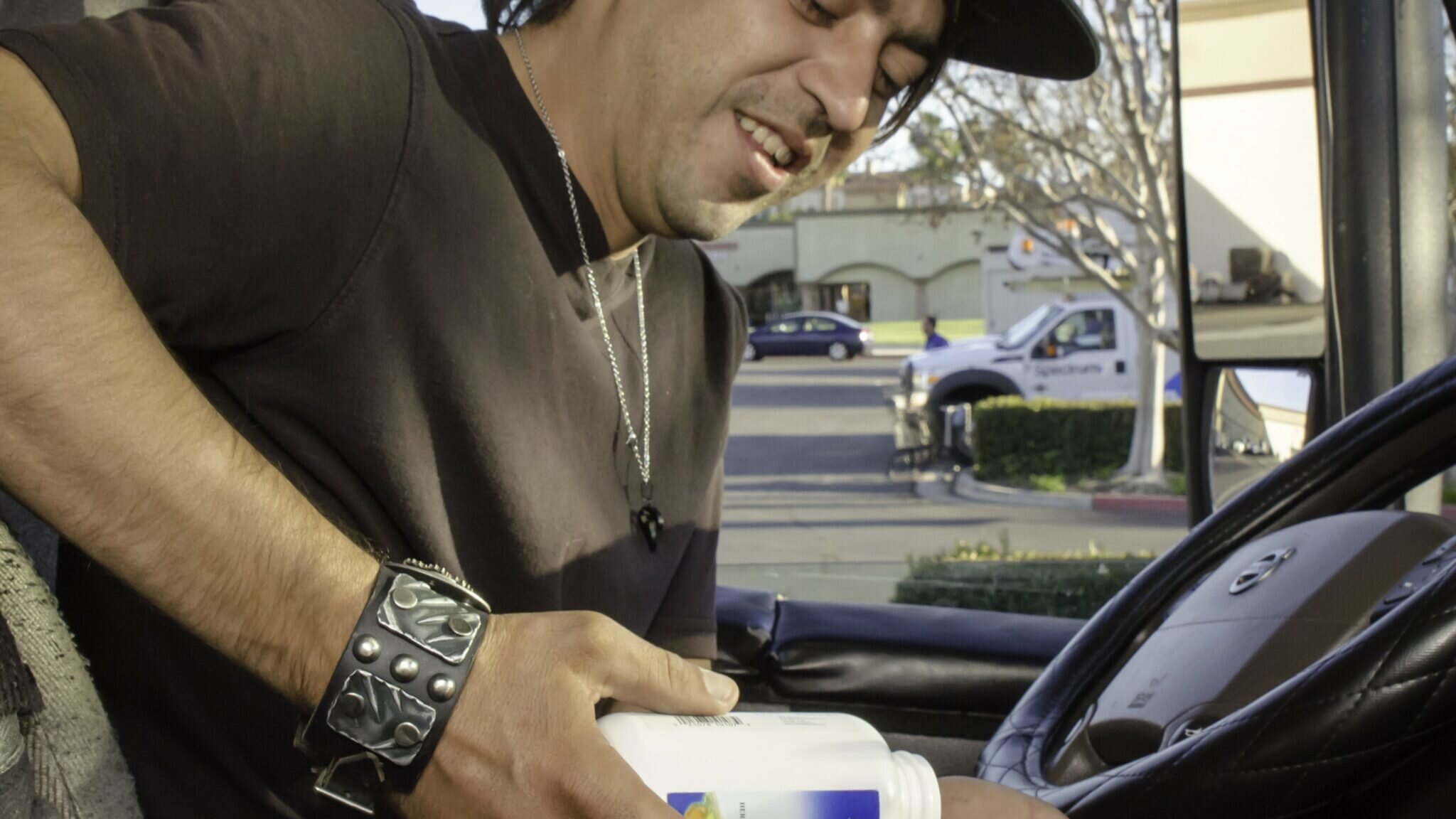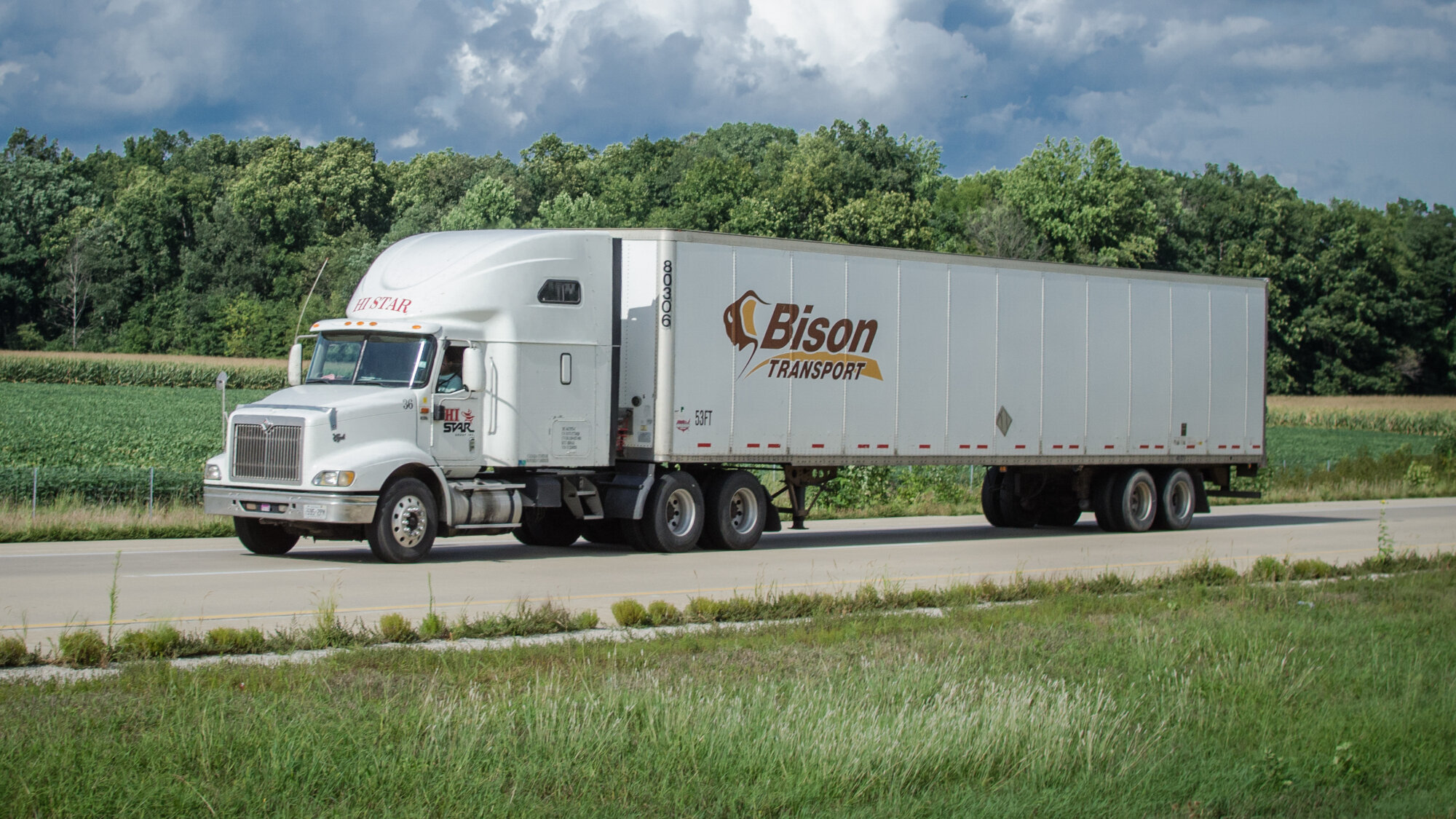
(Photo: Jim Allen/FreightWaves)
In New Prime v. Oliveira, the U.S. Supreme Court issued a ruling that changes the way arbitration agreements will be handled in the trucking industry, especially when leased owner operators are involved.
A driver operating as an independent contractor filed a class action lawsuit against New Prime, claiming that the company treated independent contractors like employees, and thus, was required to pay them at least minimum wage. The driver asserted that Prime did not pay these drivers minimum wage.
The independent contractor agreement the driver signed requires that all conflicts between the company and the driver be settled in arbitration. New Prime argued that this agreement should be upheld under the Federal Arbitration Act, while the driver argued that the FAA does not apply.
The Court sided with the driver and decided that the FAA, a 1926 law that requires courts to push cases involving interstate commerce disputes to arbitration, does not automatically apply to arbitration provisions in independent contractor agreements.
That conclusion was reached because the FAA does not require arbitration in a “contract of employment.” The Supreme Court decided that “a court should decide for itself whether §1’s ‘contracts of employment’ exclusion applies before ordering arbitration.” The Court explained: “to invoke its statutory powers under §§3 and 4 to stay litigation and compel arbitration according to a contract’s terms, a court must first know whether the contract itself falls within or beyond the boundaries of §§1 and 2.”
Supreme Court Justice Neil Gorsuch noted that the term “contracts of employment” could be interpreted “more or less as a synonym for work,” meaning it could cover owner operators just like company drivers.
“This case represents a victory for the driver in his lawsuit against the carrier and for plaintiffs’ attorneys who seek to sue carriers in class action lawsuits. The matter will be sent back to the trial court judge who will apply the Supreme Court’s ruling to the case,” Truckload Carriers Association Legal Counsel R. Eddie Wayland said in a legal comment. “This makes carriers more likely to have to face driver disputes, including class action lawsuits in federal court.”
When considering exactly how big of an issue this ruling could pose for fleets, it is important to consider how many drivers hauling for fleets are owner operators, on average.
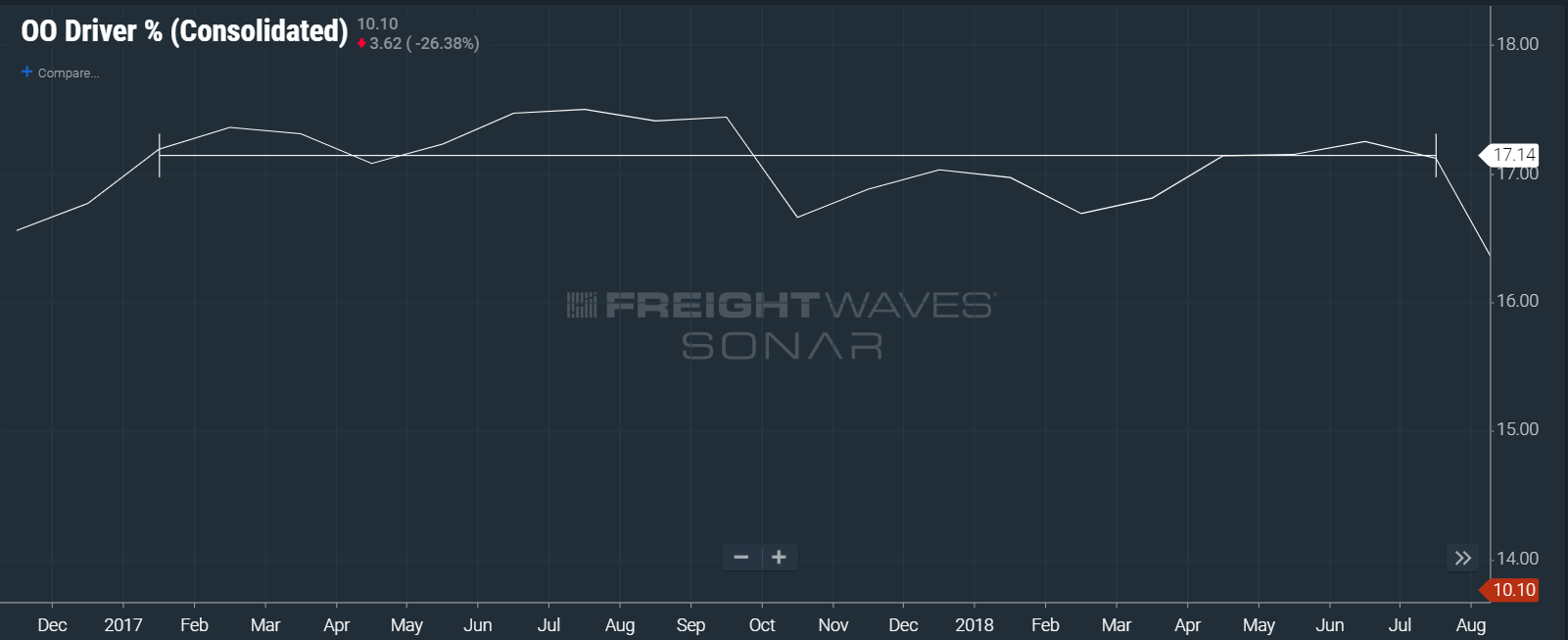
(CHART: FREIGHTWAVES’ SONAR)
TCA data housed inside FreightWaves’ SONAR indicates that just over 17% of the average truckload carrier’s utilized drivers identity as owner operators or independent contractors. That number has stayed fairly consistent over the last couple years and represents a significant percentage of drivers,
TCA’s insurance owner operator data is collected from a sample of asset-based carriers that participate in TCA Best Practice Groups, making it a good representation of the truckload industry as a whole. The data represents owner operators as a percentage of the total number of drivers a fleet utilizes.
The data suggests that most truckload carriers have significant reason to tune into the Supreme Court’s ruling and pay close attention to how things play out around them in the coming months.













